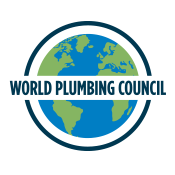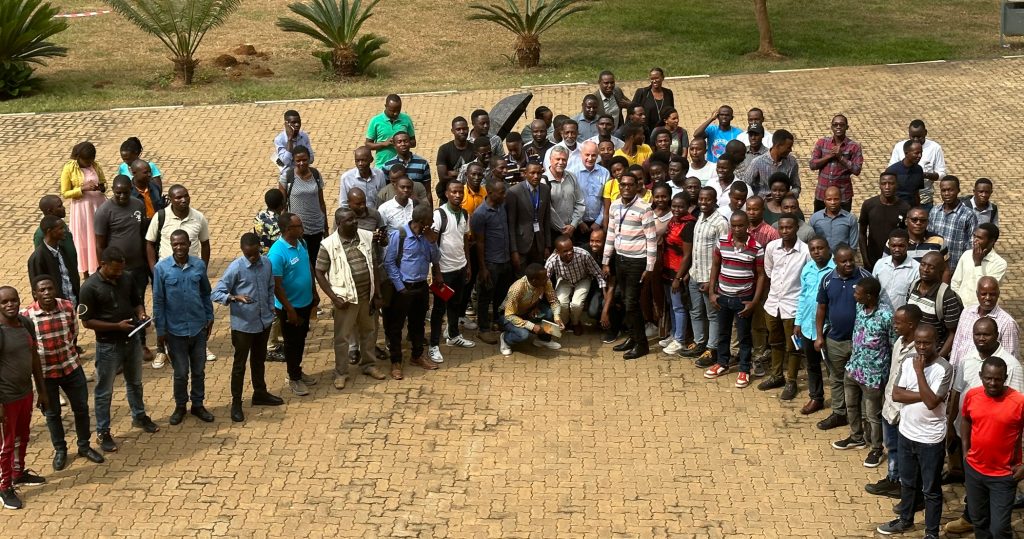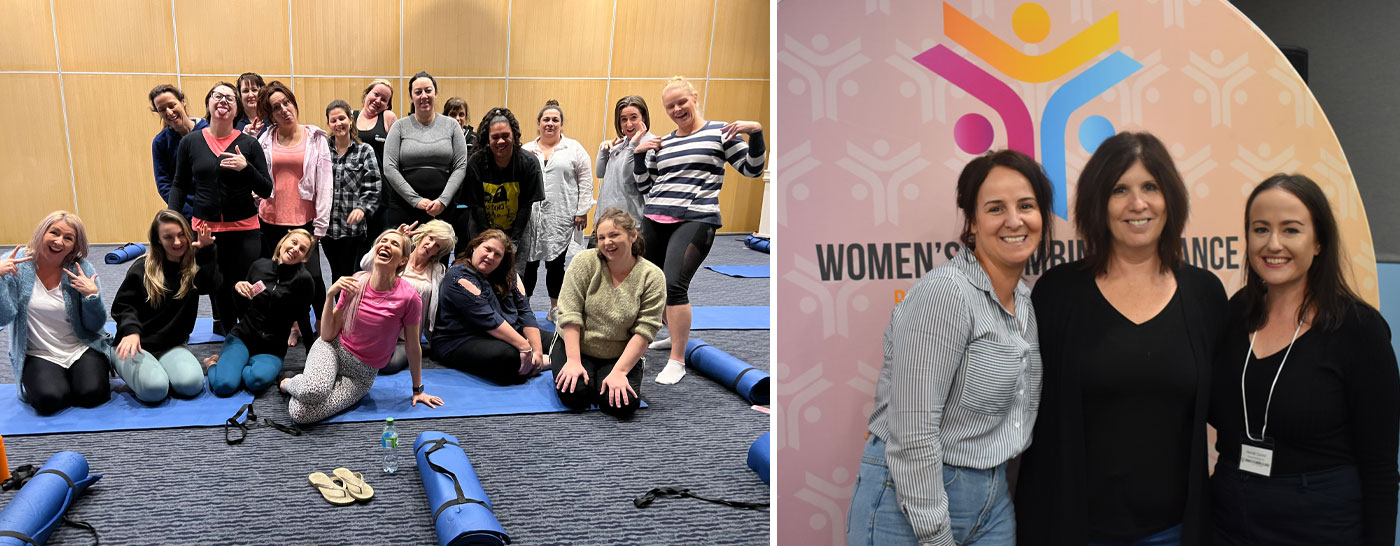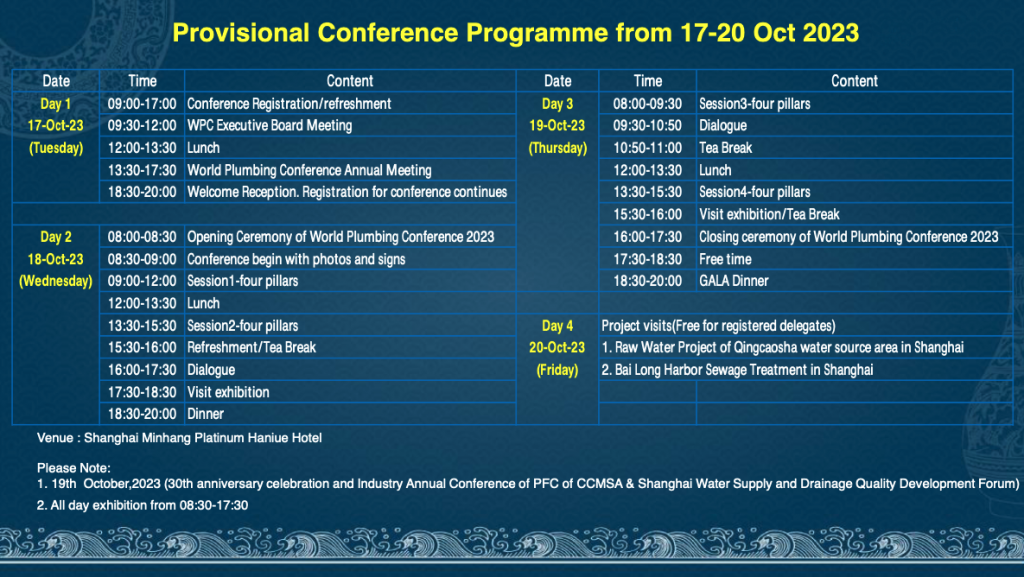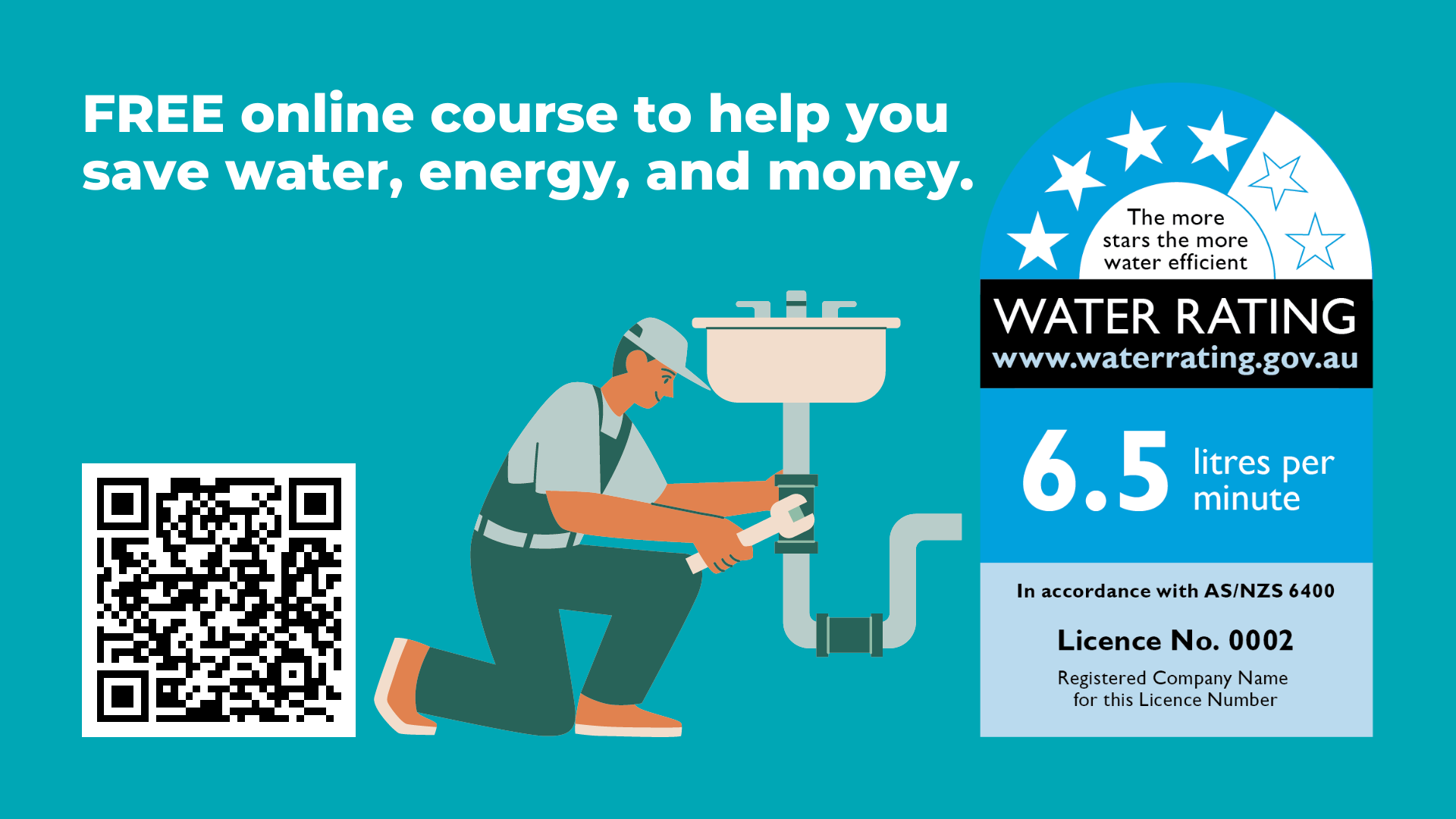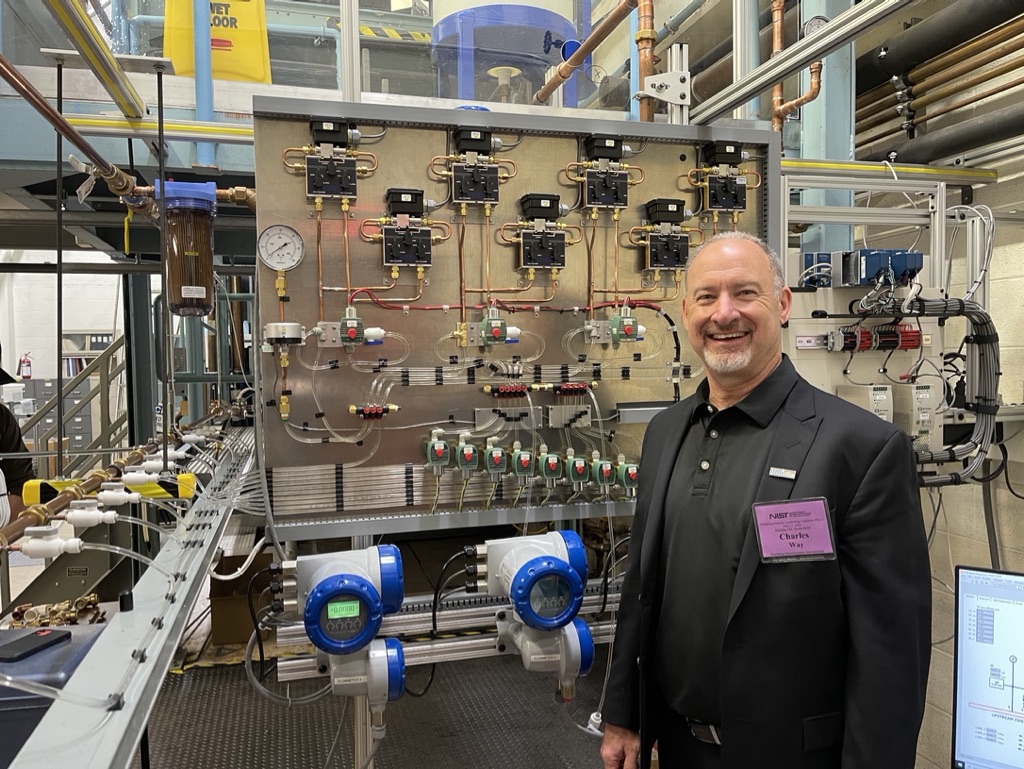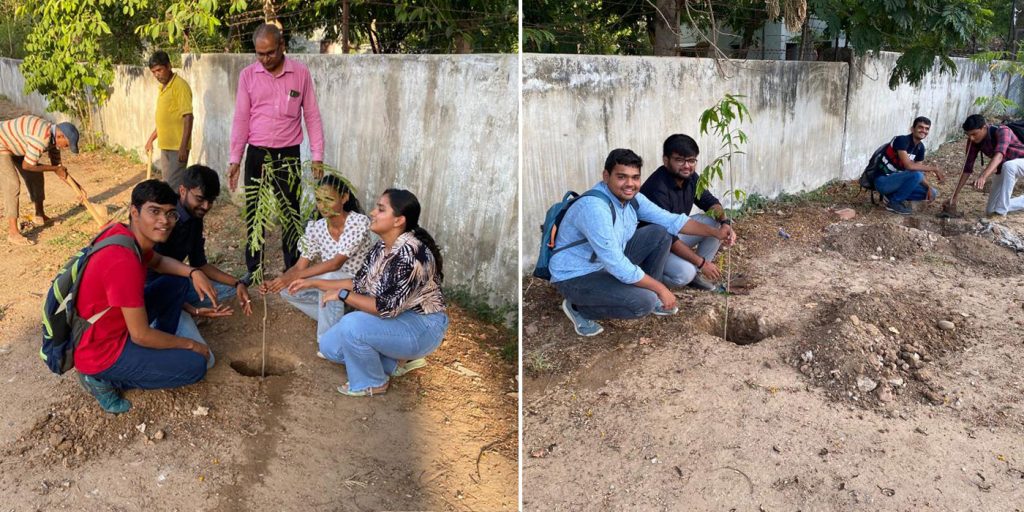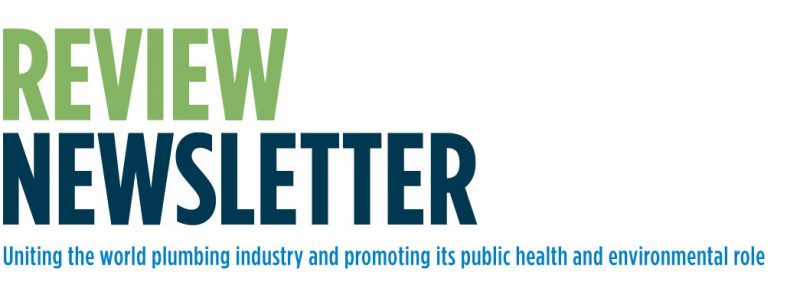
JULY 2023 | Chairman’s Message
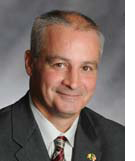 I recently returned from visiting Rwanda and meeting my good friend Jean Claude Twagirimana, president of the Rwanda Plumbers Organization (RPO), and participating in their annual plumbing professional event for journeyman plumbers, instructors, and plumbing engineers. The five-day event was held at the Rwanda Polytechnic/IPRC in Kigali. I was accompanied by United Association of Journeymen and Apprentices of the Plumbing and Pipefitting Industry of the United States and Canada (UA) Director of Training Ray Boyd and ASSE International President Dan Rademacher. The five-day event drew more than 130 attendees. We reviewed plumbing definitions, good plumbing practices and understanding the need for plumbing codes and standards. I must give credit to the RPO officers for facilitating a meeting with distinguished officials of the Rwandan government. They too were very supportive of adopting a plumbing code for their country. It is very difficult to teach good plumbing practices if you do not have a curriculum that follows a specific code. The Rwandan government also recognized that qualified plumbers would protect the country’s precious water supply. Properly trained and licensed plumbers are essential for the development of Rwanda’s infrastructure, which is important for Rwanda to grow. Licensed plumbers will generate income for the government through permit fees, fixture fees and licensing charges.
I recently returned from visiting Rwanda and meeting my good friend Jean Claude Twagirimana, president of the Rwanda Plumbers Organization (RPO), and participating in their annual plumbing professional event for journeyman plumbers, instructors, and plumbing engineers. The five-day event was held at the Rwanda Polytechnic/IPRC in Kigali. I was accompanied by United Association of Journeymen and Apprentices of the Plumbing and Pipefitting Industry of the United States and Canada (UA) Director of Training Ray Boyd and ASSE International President Dan Rademacher. The five-day event drew more than 130 attendees. We reviewed plumbing definitions, good plumbing practices and understanding the need for plumbing codes and standards. I must give credit to the RPO officers for facilitating a meeting with distinguished officials of the Rwandan government. They too were very supportive of adopting a plumbing code for their country. It is very difficult to teach good plumbing practices if you do not have a curriculum that follows a specific code. The Rwandan government also recognized that qualified plumbers would protect the country’s precious water supply. Properly trained and licensed plumbers are essential for the development of Rwanda’s infrastructure, which is important for Rwanda to grow. Licensed plumbers will generate income for the government through permit fees, fixture fees and licensing charges.
Officials from the Rwandan government attended the event, recognized the RPO and thanked them for putting the event together. Kigali, the capital of Rwanda and home to 1.2 million people, is in the early planning stages for a centralized sewer system. When it begins they will need thousands of plumbers for this monumental task. Rwanda will need to address the need for training the next generation of plumbers and the RPO is up for the task. I am forever grateful to the RPO for the opportunity to teach future plumbers of Rwanda.
Another summer is here in the states and as I write this newsletter we are experiencing mega droughts, extreme temperatures, and superstorms that are prime time stories every day. It’s hard to believe that there are still people who don’t think climate change is real. Thankfully, the world is looking at all options to replace fossil fuels. After attending the ISH trade show in Frankfort, Germany, I have seen many new developments in heat pump technology that will replace many fossil-fueled furnaces and air conditioners. The problem that has not been solved is how to transition from fossil fuels to alternative clean energy that generates enough electricity to power them and to charge the batteries in our cars. We cannot just pull the plug on all fossil fuel-generating power plants before we have the same reliable clean energy plants. Maybe artificial intelligence can solve that problem for us. With all the hype of how intelligent this new technology will be, maybe they can solve it sooner rather than later before our planet burns up.
I look forward to hosting our next WPC scholarship winner, Moses Chongo from Zambia, who will be attending the UA International Training Program (ITP) that welcomes 2,200 instructors from all over the USA and Canada. Moses will also visit training centers in Washington, D.C., New York, Buffalo, Chicago, and Detroit. Moses was the WPC scholarship winner in 2020 but could not attend because of the pandemic.
WPC Chairman
Tom Bigley
IN THIS ISSUE:
WOMEN AND GIRLS BEAR BRUNT OF WATER AND SANITATION CRISIS – NEW UNICEF-WHO REPORT
WOMEN’S PLUMBING ALLIANCE HOLDS INAUGURAL LEADERSHIP RETREAT
FILIPINO MASTER PLUMBERS LEADS AFFILIATION WITH COUNCIL FOR THE BUILT AND NATURAL ENVIRONMENT
REGISTRATION OPEN FOR 2023 WPC CONFERENCE IN SHANGHAI
WORLD PLUMBING COUNCIL INVITES SUBMISSIONS FOR ANNUAL SCHOLARSHIPS
ONLINE COURSE THAT HELPS PLUMBERS SAVE WATER, ENERGY AND MONEY
‘WHO NEEDS UNIVERSITY WHEN APPRENTICESHIPS ARE BETTER?’ WCOP ANNUAL LECTURE
NIST HOSTS PILC MEETING, EXPRESSES SUPPORT FOR RESEARCH
REPORT ON TREE PLANTATION DONE BY CEPT – IPA AHMEDABAD STUDENT CHAPTER
WOMEN AND GIRLS BEAR BRUNT OF WATER AND SANITATION CRISIS – NEW UNICEF-WHO REPORT
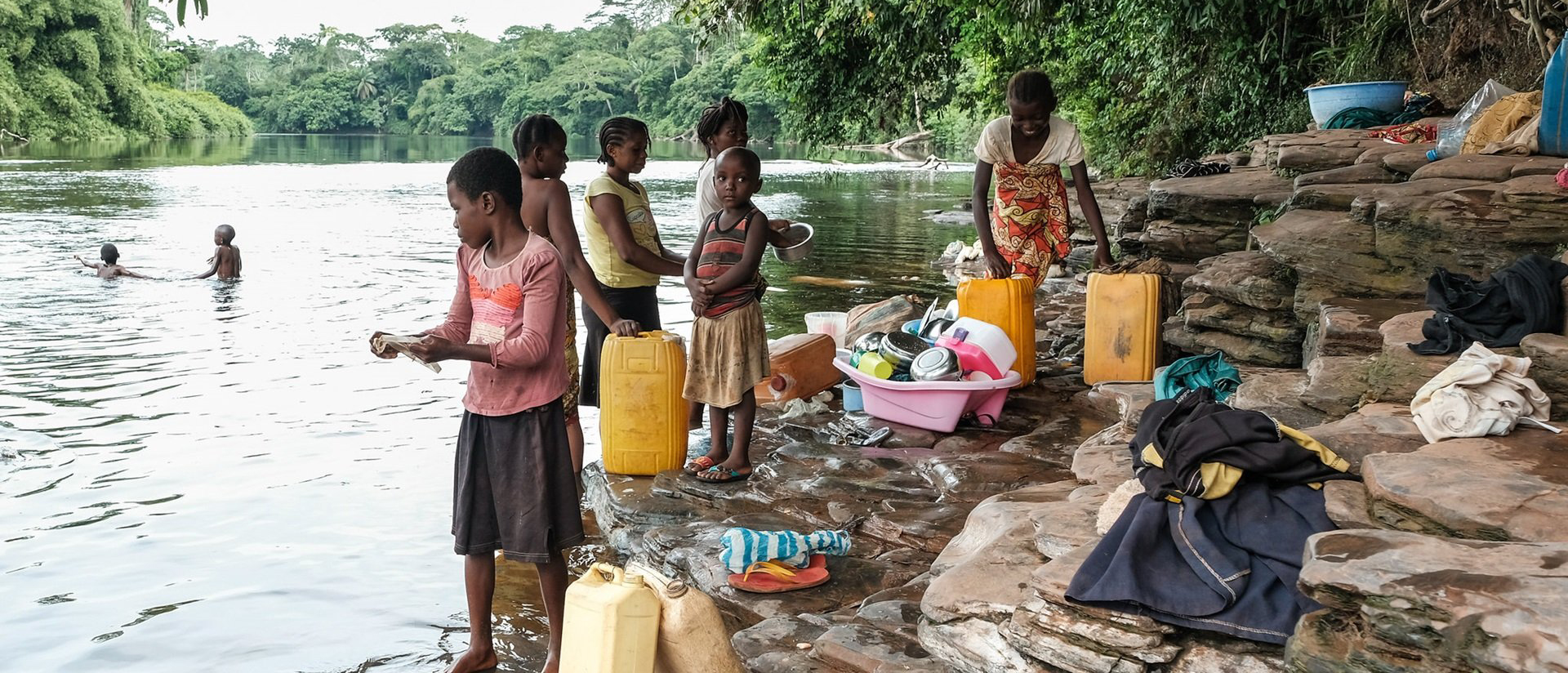
Image credit: CIFOR/Axel Fassio
Globally, women are most likely to be responsible for fetching water for households, while girls are nearly twice as likely as boys to bear the responsibility, and spend more time doing it each day, according to a new report released today by UNICEF and WHO.
Progress on household drinking water, sanitation and hygiene (WASH) 2000-2022: Special focus on gender – which provides the first in-depth analysis of gender inequalities in WASH – also notes that women and girls are more likely to feel unsafe using a toilet outside of the home and disproportionately feel the impact of lack of hygiene.
“Every step a girl takes to collect water is a step away from learning, play, and safety,” said Cecilia Sharp, UNICEF Director of WASH and CEED. “Unsafe water, toilets, and handwashing at home robs girls of their potential, compromises their well-being, and perpetuates cycles of poverty. Responding to girls’ needs in the design and implementation of WASH programmes is critical to reaching universal access to water and sanitation and achieving gender equality and empowerment.”
According to the report, globally, 1.8 billion people live in households without water supplies on the premises. Women and girls aged 15 and older are primarily responsible for water collection in 7 out of 10 such households, compared with 3 in 10 households for their male peers. Girls under 15 (7 per cent) are also more likely than boys under 15 (4 per cent) to fetch water. In most cases, women and girls make longer journeys to collect it, losing time in education, work, and leisure, and putting themselves at risk of physical injury and dangers on the way.
The report also shows that more than half a billion people still share sanitation facilities with other households, compromising women’s and girls’ privacy, dignity, and safety. For example, recent surveys from 22 countries show that among households with shared toilets, women and girls are more likely than men and boys to feel unsafe walking alone at night and face sexual harassment and other safety risks.
Furthermore, inadequate WASH services increase health risks for women and girls and limit their ability to safely and privately manage their periods. Among 51 countries with available data, women and adolescent girls in the poorest households and those with disabilities are the most likely to lack a private place to wash and change.
“The latest data from WHO shows a stark reality: 1.4 million lives are lost each year due to inadequate water, sanitation and hygiene,” said Dr Maria Neira, WHO Director, Environment, Climate Change and Health Department. “Women and girls not only face WASH-related infectious diseases, like diarrhoea and acute respiratory infections, they face additional health risks because they are vulnerable to harassment, violence, and injury when they have to go outside the home to haul water or just to use the toilet.”
The findings go on to show that a lack of access to hygiene also disproportionately affects women and girls. In many countries, women and girls are primarily responsible for domestic chores and caring for others – including cleaning, preparing food, and looking after the sick – which likely exposes them to diseases and other risks to their health without the protection of handwashing. Additional time spent on domestic chores can also limit girls’ chances of completing secondary school and gaining employment.
Today, around 2.2 billion people – or 1 in 4 – still lack safely managed drinking water at home and 3.4 billion people – or 2 in 5 – do not have safely managed sanitation. Around 2 billion people – or 1 in 4 – cannot wash their hands with soap and water at home.
The report notes some progress towards achieving universal access to WASH. Between 2015 and 2022, household access to safely managed drinking water increased from 69 to 73 per cent; safely managed sanitation increased from 49 to 57 per cent; and basic hygiene services increased from 67 to 75 per cent.
But achieving the Sustainable Development Goal target for universal access to safely managed drinking water, sanitation, and basic hygiene services by 2030 will require a six-fold increase in current rates of progress for safely managed drinking water, a five-fold increase for safely managed sanitation, and a three-fold increase for basic hygiene services.
Further efforts are needed to ensure that progress on WASH contributes towards gender equality, including integrated gender considerations in WASH programmes and policies and disaggregated data collection and analysis, to inform targeted interventions that address the specific needs of women and girls and other vulnerable groups.
ASPE, IAPMO, PMI, AND WPC TO PRESENT EIGHTH EMERGING WATER TECHNOLOGY SYMPOSIUM IN SCOTTSDALE, ARIZONA
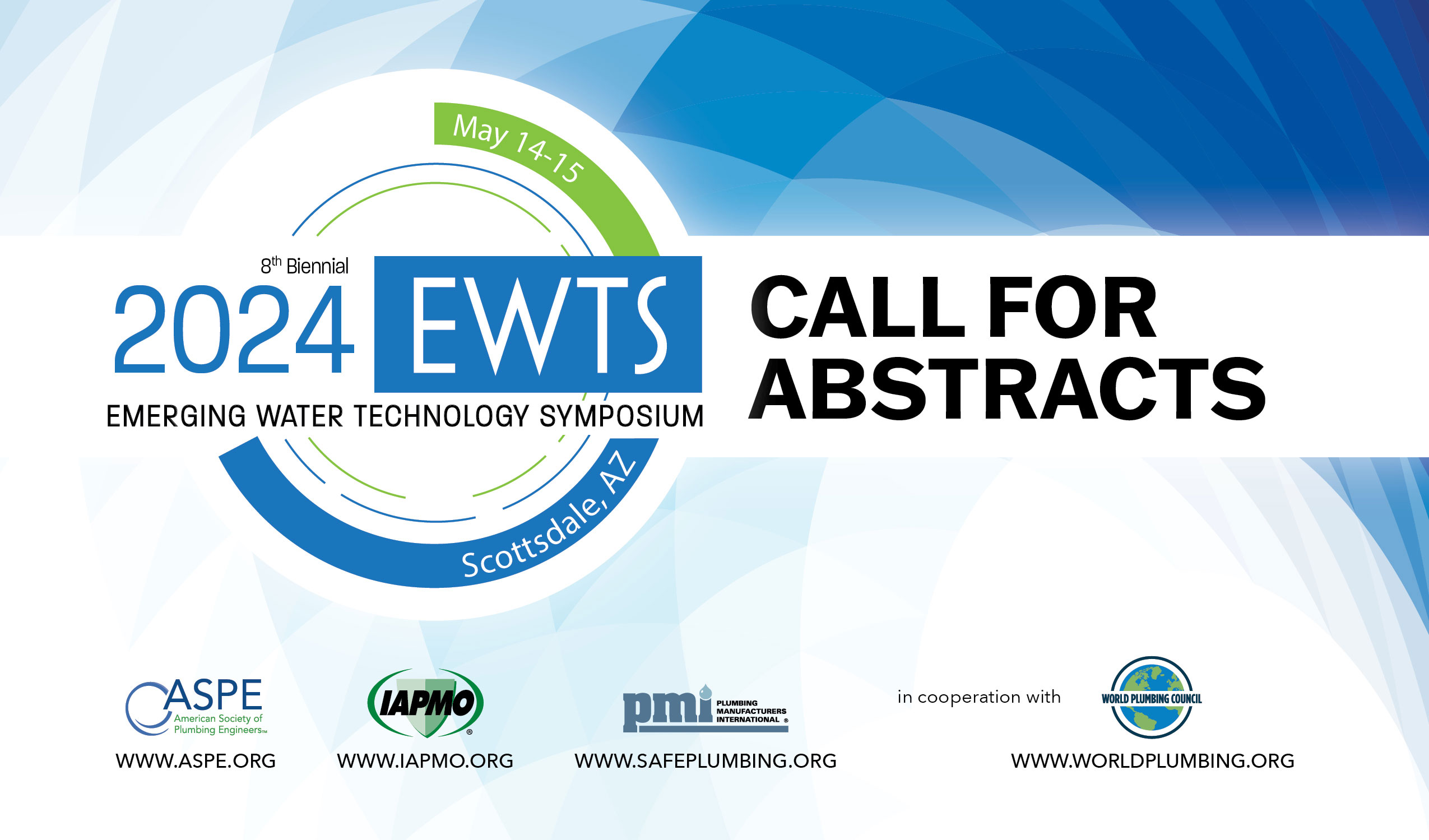
The American Society of Plumbing Engineers (ASPE), the International Association of Plumbing and Mechanical Officials (IAPMO®), and Plumbing Manufacturers International (PMI), in cooperation with the World Plumbing Council (WPC), will convene the eighth biennial Emerging Water Technology Symposium (EWTS) at the Scottsdale Plaza and Villas in Scottsdale, Arizona, USA on 14-15 May 2024. A Call for Abstracts for this highly respected event has been issued and is available for download at https://ewts.org/wp-content/uploads/2023/06/EWTS24_Call_for_Abstracts.pdf. Submissions by interested presenters are due 30 Sept. 2023.
The eighth EWTS is co-convened by the three associations that have worked together closely over the past few years to grow the symposium and make it a can’t-miss event for those who work or are interested in the fields of safe plumbing, water distribution, and water efficiency. For the 2024 event, the overall symposium theme will be “The Nexus Between Safety and Sustainability” and will focus on avoiding the unintended consequences of striving for both. The co-conveners stress that the EWTS is still an international event and welcome abstracts and participation from across the globe.
“Water scarcity issues are increasing while water safety issues are becoming more prevalent,” said Mary Ann Dickinson, the EWTS Technical Committee chair. “The EWTS co-conveners believe there is a need to develop holistic solutions to create a safe and sufficient water supply because at times, water conservation and efficiency efforts create unintended water safety issues and, in return, well-intended safety efforts limit the ability to conserve or reuse water. The co-conveners of the 2024 EWTS are excited to build the program around these issues to help drive these important conversations and work toward practical solutions using new ideas and technology.”
“The EWTS co-convening organizations are excited about taking a different approach for the 2024 event by building the program around the theme of ‘The Nexus Between Safety and Sustainability,’ an issue the plumbing industry has wrestled with for years,” said Dave Viola, CEO of The IAPMO Group. “We invite everyone interested in doing so to submit an abstract for consideration and especially look forward to submissions that focus their message on this theme.”
For program and presentation information from past Emerging Water Technology Symposiums, please visit https://ewts.org/.
For additional information, please contact Maria Bazan at +1.708.995.3000 or maria.bazan@iapmo.org.
WOMEN’S PLUMBING ALLIANCE HOLDS INAUGURAL LEADERSHIP RETREAT
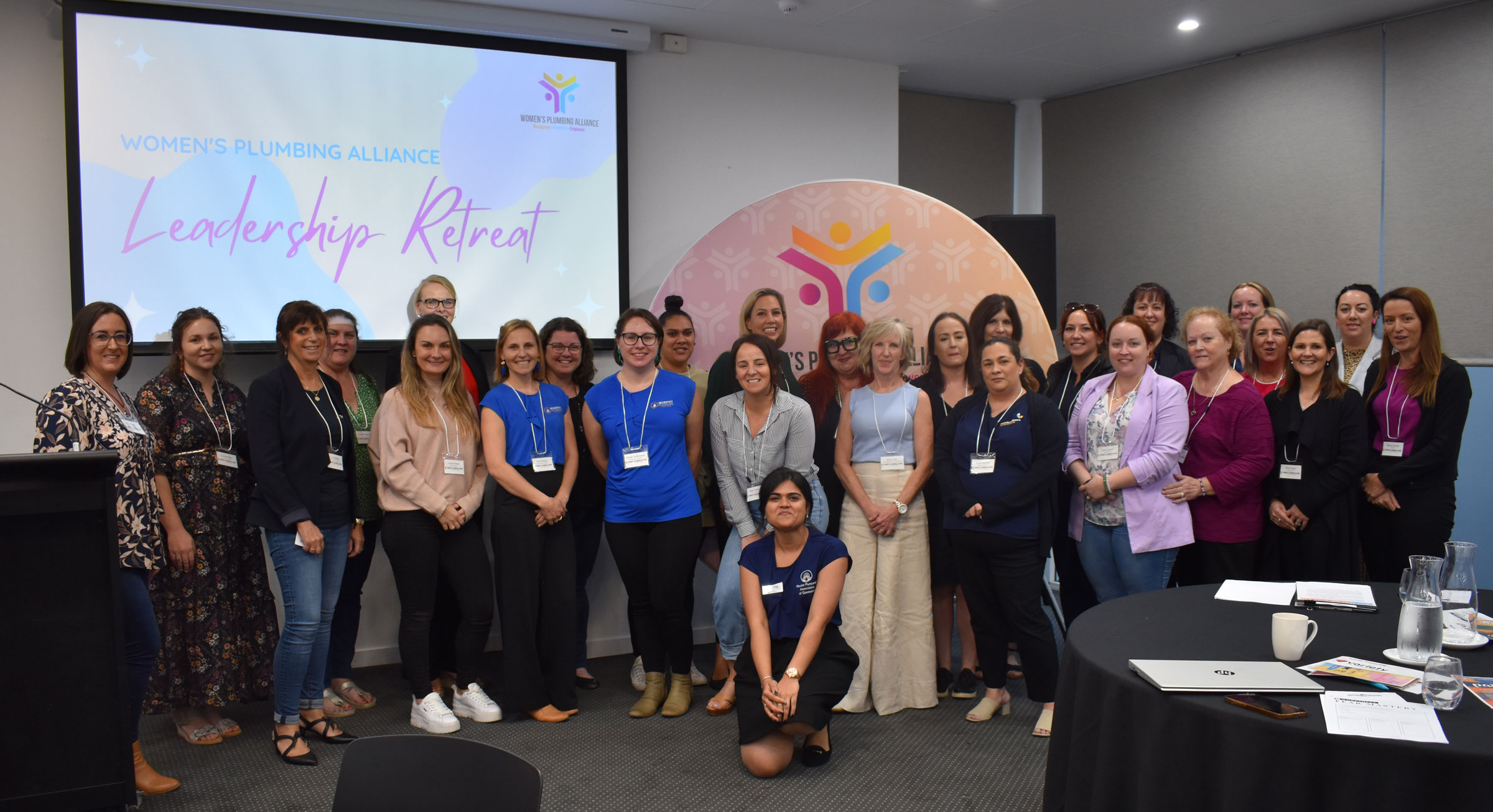
Submitted by the Master Plumbers’ Association of Queensland (MPAQ)
“Women supporting women – in our industry, we are fortunate to have strong and inspiring women empowering their fellow women to be on the tools and lead the business,” says Penny Cornah, executive director of the Master Plumbers’ Association of Queensland (MPAQ). “That kind of leadership is what we want to cultivate and celebrate, as we move our industry towards a progressive future.”
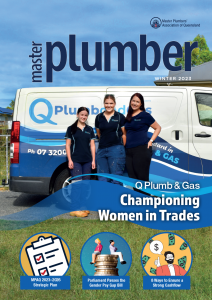 MPAQ held its inaugural Women’s Plumbing Alliance (WPA) leadership retreat from Thursday 18 May to Friday 19 May 2023 at the Sea World Resort on the Gold Coast. Attended by dozens of women from the plumbing and gas industry, the event celebrated the vital role of women in the trades and gave them the opportunity to network, learn, and develop leadership skills.
MPAQ held its inaugural Women’s Plumbing Alliance (WPA) leadership retreat from Thursday 18 May to Friday 19 May 2023 at the Sea World Resort on the Gold Coast. Attended by dozens of women from the plumbing and gas industry, the event celebrated the vital role of women in the trades and gave them the opportunity to network, learn, and develop leadership skills.
Expert speakers led the sessions to start off the retreat, covering a wide range of topics from business and HR to personal and professional development.
Leigh Mackay, executive manager of member engagement at BUSSQ, opened the first business session with a presentation on financial empowerment for women. She shared some eye-opening facts such as the fact that even though women comprise 47.4% of the workforce, they usually retire with 24% less superannuation than their male counterparts. She was followed shortly by Emily Harrison, insurance adviser from Austbrokers Comsure, who talked about management liability insurance and covered topics about handling employee theft and wrongful termination.
MPAQ’s very own Emma Ross, senior HR adviser, provided an HR update on some of the most important changes to workplace laws. She covered topics on pay secrecy, leaves for temporary shutdowns, dealing with sexual harassment in the workplace, family and domestic violence leaves, and flexible work arrangement for employees.
Suzanne Faulkner, partner and CFO at Xact Accounting, gave a very helpful blueprint to prepare a business for both a downturn and an upturn. She gave a bit of a backgrounder about Australia’s current economy and cost of living, and how the trades impact the daily lives of Australians.
On the trades side, Trish Bancroft from RWC discussed their newest product for plumbers – the RWC FloodGuard. Given than one out of 10 water damage claims in Aussie households were due to burst or damaged flexible hose assembly, the FloodGuard will help give homeowners peace of mind.
Attendees were also fortunate to listen to the keynote speaker, Sonia McDonald, a renowned leadership expert who aims to inspire people to take courageous action in all aspects of their lives. Everyone received a copy of her book, Just Rock It! How to Get What You Really Want, which provides inspiring nuggets of wisdom and simple strategies to help readers break through their fear and doubt to create an unwavering sense of self.
Apart from the meaningful and informative sessions, the women also had the opportunity to relax and forge new friendships with their fellow attendees during the dinner and sunset cocktail sessions. A recharging yoga session was led the following morning by health habit coach Loz Antonenko.
The Women’s Plumbing Alliance aims to recognise, connect, and empower all women in the plumbing and gas industry. It was established to assist women working behind the scenes and on the tools develop an important and supportive community as key decision makers of the industry. The WPA Leadership Retreat is only the first of hopefully more leadership retreats where women from the industry can take a break from the everyday grind and find meaningful ways to reflect, grow, and develop skills that will benefit their own businesses and workplaces.
FILIPINO MASTER PLUMBERS LEADS AFFILIATION WITH COUNCIL FOR THE BUILT AND NATURAL ENVIRONMENT
Submitted by Allan S. Dumalay
Fifteen years ago, an affiliation with a professional group was organized, the Philippine Council for the Built and Natural Environment (CBNE), composed of nine occupations: agriculturists, architects, chemists, environmental planners, foresters, geologists, interior designers, landscape architects, and master plumbers. The goal was aimed to harmonize sustainable development and resiliency. In 2023 the National Master Plumbers Association of the Philippines (NAMPAP) was tasked with leading this effort.
During a presentation at World Plumbing Conference 2019, NAMPAP shared the details of an almost irreversible ecological catastrophe on the island of Boracay, which was only prevented thanks to last-minute action. This came at a high cost, and the Authority is still searching for a long-term solution, as algae – an accepted visual indicator of the water quality pollution — can still be observed.
The feared marine dead zone and land subsidence are felt in highly urbanized cities, partly the result of over-extraction of groundwater and the sealing of land surfaces due to development and excessive release of untreated sewage. As 85 percent of such developments are housing settlements, it clearly is in the hands of the plumbing trade, professions and the industry as a whole.
A prediction that the world may suffer extreme global warming if we do not stop utilizing fossil fuel, unsustainable materials, and energy to limit our carbon footprint may become a reality. Preventing this from occurring requires a paradigm shift; we are dedicated to taking an early, resolute action directed at achieving sustainable development and resiliency. Our advocacy of providing our clientele with the best service will now also focus on this global concern. One NAMPAP – advancing the roles of master plumbers in nation building!
REGISTRATION OPEN FOR 2023 WPC CONFERENCE IN SHANGHAI
Early bird registration is open until 31 July, 2023. Register today: https://www.wpc-sh.com/
The World Plumbing Conference is an international water conference organized by the World Plumbing Council that integrates seminars and exhibitions. The World Plumbing Conference has built an efficient business platform for the development and technical exchange of the global water industry.
World Plumbing Conference 2023 in conjunction with Shanghai International Exchange Seminar on Water Supply and Drainage Equipment, Technology will be held in Shanghai, China from 17-20 October, 2023. With the theme Greener, Smarter, Safer, the conference launched multi-angle and all-around in-depth exchanges in light of the new trends and characteristics of the global water supply and drainage industry in the post-epidemic era. The conference is committed to creating a high-end platform for one-stop environmental technology exchanges in politics, industry, academia and research.
We hope to see you there.
WORLD PLUMBING COUNCIL INVITES SUBMISSIONS FOR ANNUAL SCHOLARSHIPS
The World Plumbing Council is accepting applications for its three annual scholarships, two of which are awarded to plumbers to travel internationally to learn more about the industry, and the third of which goes to a trainer/instructor to attend the annual UA Instructor Training Program in Ann Arbor, Michigan.
The scholarships are available to individuals actively involved in their local plumbing industry, particularly in education and training. They help create an educational exchange between plumbing industry participants from different countries; increase awareness of the contribution plumbing has made to global health, sustainability, and the environment; and provide a platform for networking and relationship building on a global level, helping strengthen the inter-connectedness of the global plumbing industry.
The application deadline for each scholarship is Sept. 30, 2023.
More information can be found here: https://www.worldplumbing.org/scholarship/
ONLINE COURSE THAT HELPS PLUMBERS SAVE WATER, ENERGY AND MONEY
Submitted by the Australian Department of Climate Change, Energy, the Environment and Water
The Water Efficiency Labelling and Standards (WELS) team from Australia has launched a new online course to help developers, builders and plumbers save water, energy and lower the cost of their clients’ utility bills.
It will also help them stay up to date with their legal obligations under the Water Efficiency Labelling and Standards Act 2005. This free course can be completed in 45 minutes.
The WELS scheme sets the water efficiency and labelling requirements for taps, showers, flow controllers, toilets, urinals, dishwashers and washing machines. Every product sold in store or online in Australia must be registered and labelled with its correct water consumption information.
The WELS scheme aims to encourage more efficient domestic water use and reduce demand for drinking water. It does this by informing consumers about water efficiency at the point of sale through the WELS star rating label.
The WELS scheme is instrumental in reducing water demand in Australia and deliver both water and energy savings. This year the WELS scheme will save 165 gigalitres of water across Australia. That amounts to over A$1.5 billion in reduced utility bills. For more information visit waterrating.gov.au
‘WHO NEEDS UNIVERSITY WHEN APPRENTICESHIPS ARE BETTER?’ WCOP ANNUAL LECTURE
Submitted by BPEC
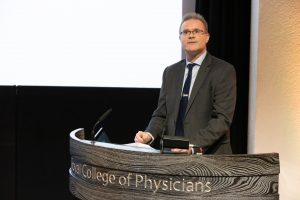 BPEC CEO Neil Collishaw was one of the keynote speakers at the Worshipful Company of Plumbers’ 38th annual Lecture in London, which had the crucial theme of “Who needs university when apprenticeships are better?”
BPEC CEO Neil Collishaw was one of the keynote speakers at the Worshipful Company of Plumbers’ 38th annual Lecture in London, which had the crucial theme of “Who needs university when apprenticeships are better?”
This event was extremely successful with 130 delegates, including key industry leaders from across the country; Robin Walker MP, chair of the Commons Education Select Committee; and representatives from the plumbing and heating delivery network, including Smart Gas Training & Assessment (one of BPEC’s approved centres).
The three keynote speakers were drawn from across the industry, Collishaw representing education and training; Carl Arntzen, CEO of Worcester Bosch for manufacturing; and Kevin Wellman, CEO of CIPHE (Chartered Institute of Plumbing & Heating Engineers), the plumbing and heating professionals.
Their engaging presentations highlighted the benefits of paid apprenticeships versus university for those who begin their careers by gaining real work-related skills and getting fully qualified while remaining debt free.
“It was an absolute pleasure and honour to share the stage with my fellow CEOs, Carl and Kevin! Hearing their perspectives, insights and contributions made for a dynamic and stimulating debate that truly showcased the power of industry collaboration,” Neil said.
Collishaw’s presentation highlighted the current skills shortage and the need to attract more plumbing and heating apprentices. He emphasized that plumbing and heating engineers must have the knowledge and skills to provide the right advice and guidance to customers on the most appropriate and energy-efficient options to heat their homes now and in the future.
Neil concluded, “I was also delighted to witness several young industry ambassadors receive scrolls of excellence awards at the event, one being Ruben Duggan, our SkillPLUMB 2022 Gold Medallist!”
Established over 30 years ago, BPEC is a not-for-profit organisation that supports the industry via The BPEC Charity. BPEC approved training centres can be found at: https://bpec.org.uk/learners/centres/
USING IAPMO’S WATER DEMAND CALCULATOR™ CAN LEAD TO ENERGY, CARBON AND WATER SAVINGS IN SINGLE AND MULTIFAMILY RESIDENCES, STUDY FINDS
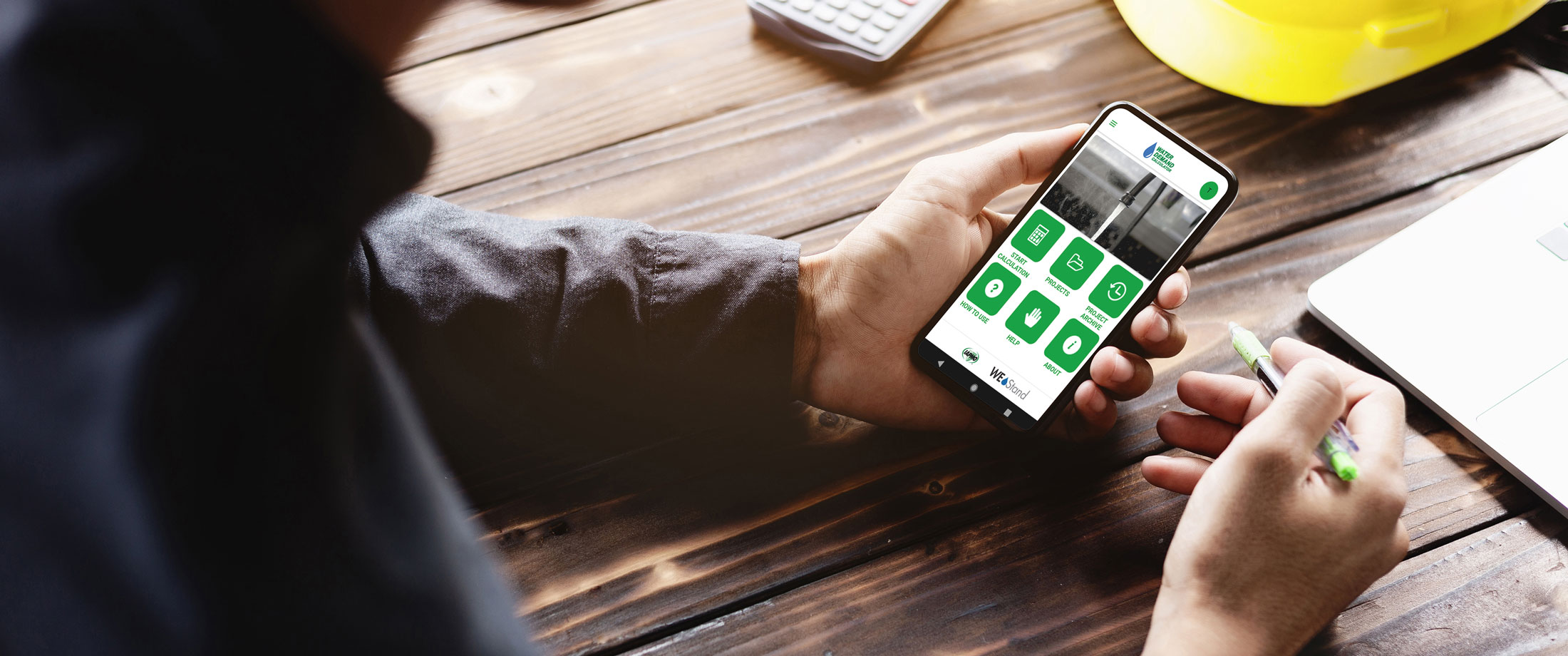
Submitted by the International Association of Plumbing and Mechanical Officials (IAPMO)
Using the International Association of Plumbing and Mechanical Officials’ (IAPMO) Water Demand Calculator™ as an alternative to sizing methods in traditional plumbing codes can result in energy, carbon and water savings with no change to how residents use plumbing fixtures in their homes every day, an analysis by Arup, a global collective of designers, consultants and experts dedicated to sustainable development, has found.
IAPMO commissioned Arup to analyze and better understand the Water Demand Calculator’s potential for sustainability savings. Arup compared the Water Demand Calculator with the Hunter’s Curve method found standard in both the Uniform Plumbing Code (UPC®) and the International Plumbing Code (IPC®) for sizing domestic hot water systems in four residential-use cases. The analysis included a single-family home, and six-unit, 45-unit and high-rise multifamily residences.
Arup’s study found that when the Water Demand Calculator is used for domestic water design for residential buildings instead of the Hunter’s Curve sizing methods, there are resulting operational energy and embodied carbon savings in all four of the use cases, as well as water savings in the non-circulating units. Water savings were demonstrated through minimized time to tap using the Water Demand Calculator sizing and range from 450 gallons to 71,000 gallons (1,703 liters to 268,764 liters) annually depending on the building size.
A single-family unit prototype showed annual water savings of 450 gallons (1,703 liters), while high-rise residential buildings show savings in operational carbon between 73 and 84% for booster pumps and embodied carbon savings ranging from 20% to 41%. Using the Water Demand Calculator instead of the Hunter’s Curve method to size domestic water systems in high-rise residential buildings shows savings of operational carbon ranging from 2,000 to nearly 24,000 pounds (907 kilograms to nearly 10,886 kilograms) of carbon dioxide per high-rise residential building, depending on grid emissions at the project site. Additionally, a reduction in pipe sizing allows for reduced heat loss through pipes.
”The Water Demand Calculator is a tool for its age,” IAPMO Vice President of Technical Services and Research Christoph Lohr, P.E., said. “With concerns of energy reduction and water savings being top of mind for many regions in the United States and the world, having the latest methodology to meet goals is vital. We greatly appreciate Arup providing IAPMO with a third-party evaluation of the potential for the Water Demand Calculator to help meet sustainability goals.”
The Water Demand Calculator is the first significant update for water pipe sizing in buildings since Hunter’s Curve was developed more than 80 years ago. The Water Demand Calculator predicts peak water demand for single- and multifamily dwellings and removes the need for assigning fixture units to plumbing fixtures and corresponding to Hunter’s probability curve. Instead, it directly calculates peak demand using algorithms based on the building size.
Contained within Appendix M of the 2021 and 2024 Uniform Plumbing Code (UPC®) and free to download, version 2.1 of the Water Demand Calculator addresses water quality issues attributed to lower flows in oversized premise plumbing while simultaneously using less water and energy, representing the most impactful innovation in pipe sizing in nearly a century. It is the result of a multiyear effort to develop a new statistically based pipe sizing method stemming from a need to address profound water safety and wasted water and energy concerns resulting from oversized water supply pipes in homes and buildings.
The entire Arup report may be viewed HERE.
IAPMO’s Water Demand Calculator may be downloaded HERE. For more information, contact Dan Cole at dan.cole@iapmo.org.
NIST HOSTS PILC MEETING, EXPRESSES SUPPORT FOR RESEARCH
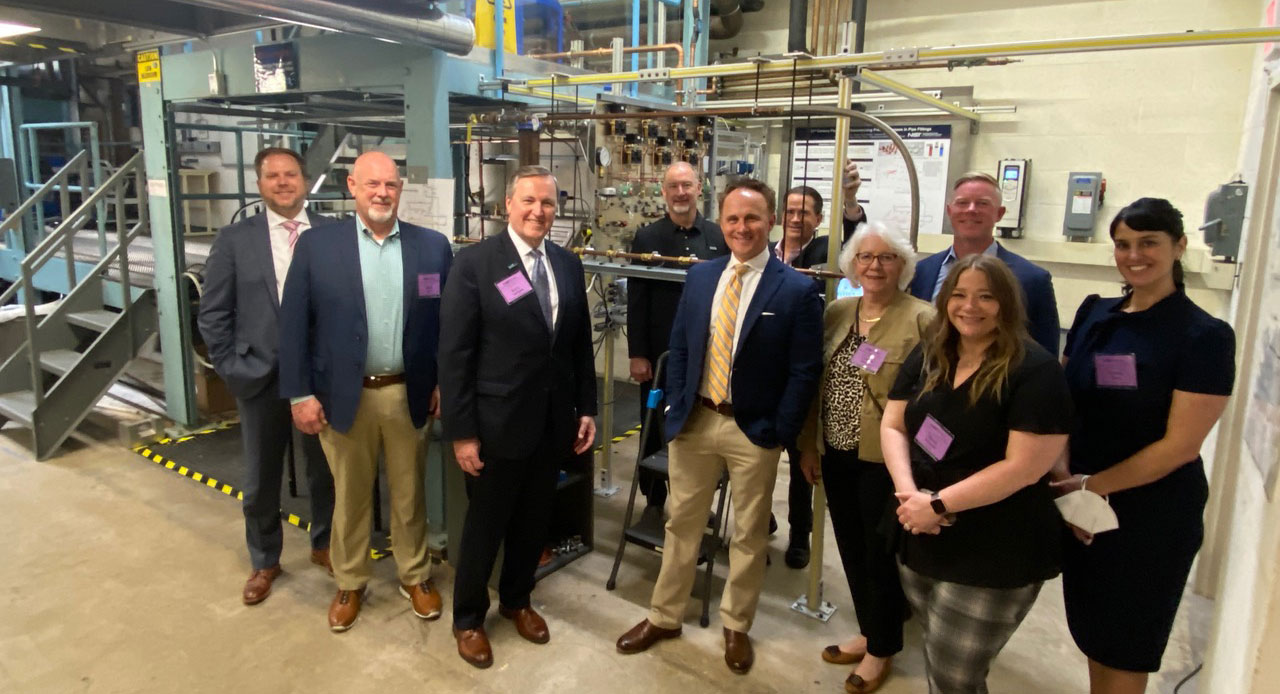
(l-r): PILC meeting attendees Christopher Lindsay, IAPMO; David Parney, Cast Iron Soil Pipe Institute; Kerry Stackpole, PMI; Chip Way, PMI board vice president and Lavelle Industries; Dain Hansen, IAPMO; Dan Ashenden, BNP Group publisher; Cindy Sheridan, PHCC-N. America; Jeff Church, Plastic Pipe and Fittings Association; Nicole Krawcke, BNP Media; and Teresa Pezzi, Mechanical Contractors Association
Submitted by Plumbing Manufacturers International (PMI)
Twenty-four individuals representing 15 organizations that are members of the Plumbing Industry Leadership Council (PILC) attended the group’s recent meeting at the National Institute of Standards and Technology (NIST) campus in Gaithersburg, Maryland. Plumbing Manufacturers International (PMI) CEO/Executive Director Kerry Stackpole termed the agenda for the meeting as “ambitious” and “wide-ranging,” covering the many issues facing the plumbing industry today.
He added that the meeting was “incredibly helpful” because of the ideas the participants exchanged on issues including talent recruitment, water and sanitation service improvement in disadvantaged communities, the post-COVID workplace, water infrastructure, water reuse, standards harmonization, extended producer responsibility, and more.
The PILC members were welcomed by NIST Director Laurie Locascio, who expressed support for premise plumbing research on behalf of her organization. Also in attendance from NIST were four researchers – Natascha Milesi-Ferretti; Bill Healy, Ph.D.; PMI conference and webinar presenter Andrew Persily, Ph.D.; and David Yashar, Ph.D.
The NIST team gave participants a tour of the institute’s premise plumbing research lab. NIST researchers have studied water efficiency in high-performance buildings; energy consumption and thermal losses in hot water systems, including premise plumbing; the impact of water-use pattern, temperature, and water quality parameters on the occurrence of opportunistic premise plumbing pathogens; the behavior of disinfection byproducts in simulated residential hot water systems; and the measurement of pressure-flow characteristics of water in plumbing pipes and fittings.
Chip Way, PMI board of directors vice president from Lavelle Industries, at the NIST premise plumbing research laboratory testing center.
Extended discussions occurred on how to attract individuals into the plumbing industry and skilled trades, he said. These talks covered what Stackpole termed as IDEA – inclusion, diversity, equity and accessibility — as well as association programs specifically for women, emerging leaders, and students and workers interested in a career in the skilled trades. The post-COVID reality was another topic of great interest, with companies working to achieve a balance between onsite and remote working arrangements. “What’s that going to mean for commercial real estate? What’s that going to mean for our industry?” Stackpole asked. “A lot of our colleagues around the table still have brick-and-mortar headquarters and some of them are quite large.”
The following PILC organizations were representated at the meeting: Alliance for Water Efficiency, American Rainwater Catchment Systems Association, American Society of Plumbing Engineers, Cast Iron Soil Pipe Institute, Copper Development Association, IAPMO, International Code Council, Mechanical Contractors Association of America, National Institute of Building Sciences, NSF, Plastic Pipe and Fittings Association, Plumbing, Heating, Cooling Contractors (PHCC) – North America, PMI, United Association, and Water Quality Association. Individuals from BNP Media – publisher of Plumbing & Mechanical, Plumbing & Mechanical Engineer and Supply House Times – also attended.
REPORT ON TREE PLANTATION DONE BY CEPT – IPA AHMEDABAD STUDENT CHAPTER
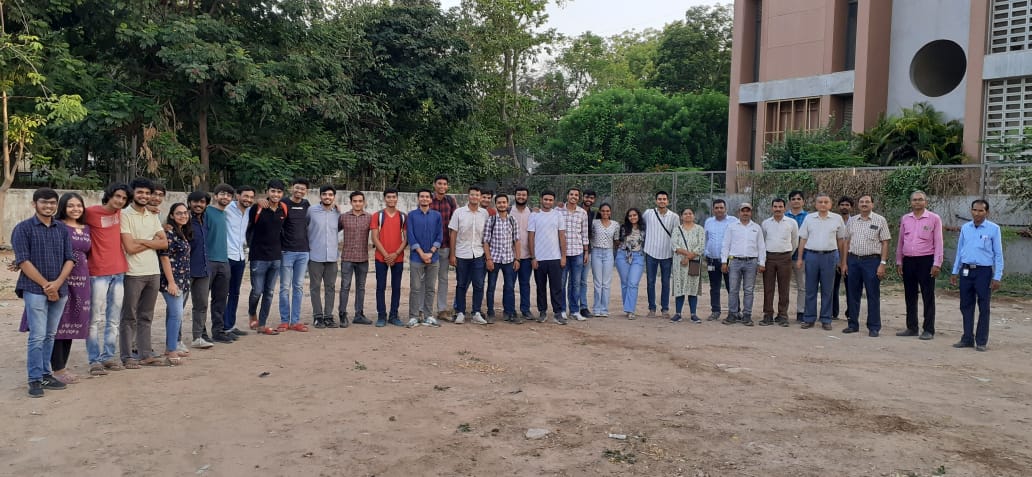
Submitted by the Indian Plumbing Association (IPA) Ahmedabad Student Chapter
We need to plant a seed of environmental care in the soil of our young students’ minds that will bear the fruit of what we expect from them in the future. Our mission of creating a greener world cannot be a success if future generations do not continue the efforts we’re making now; hence it is important to educate the younger generation about the environment, the issues we face, and how to tackle them.
To inspire students of CEPT University in Ahmedabad, Gujarat, India, to create more responsible citizens of tomorrow, the IPA Ahmedabad Student Chapter and IPA Ahmedabad Chapter organized a Tree Plantation event on 5 May 2023.
Ms Dipsha Shah (faculty of Technology), CEPT University; Mr Dipen Mehta (Convener – IPA Ahmedabad Student Chapter and editorial board member of Indian Plumbing Today); with Mr Gaurang Patel from the IPA Ahmedabad Chapter along with the executive committee members together executed the event at CEPT University, Ahmedabad.
More than 28 students participated, planting 30 trees of various species like Neem, Gulmohar, and Asopalav. IPAEC member advised them to take care of all trees to grow as memory of students of CEPT University.
The IPA Ahmedabad chapter team was happy to conduct an awareness event to learn about the environment.
IAPMO PUBLISHES SPANISH, INTERNATIONAL ENGLISH VERSIONS OF “MY MOM IS A PLUMBING SUPERHERO” COLORING BOOK
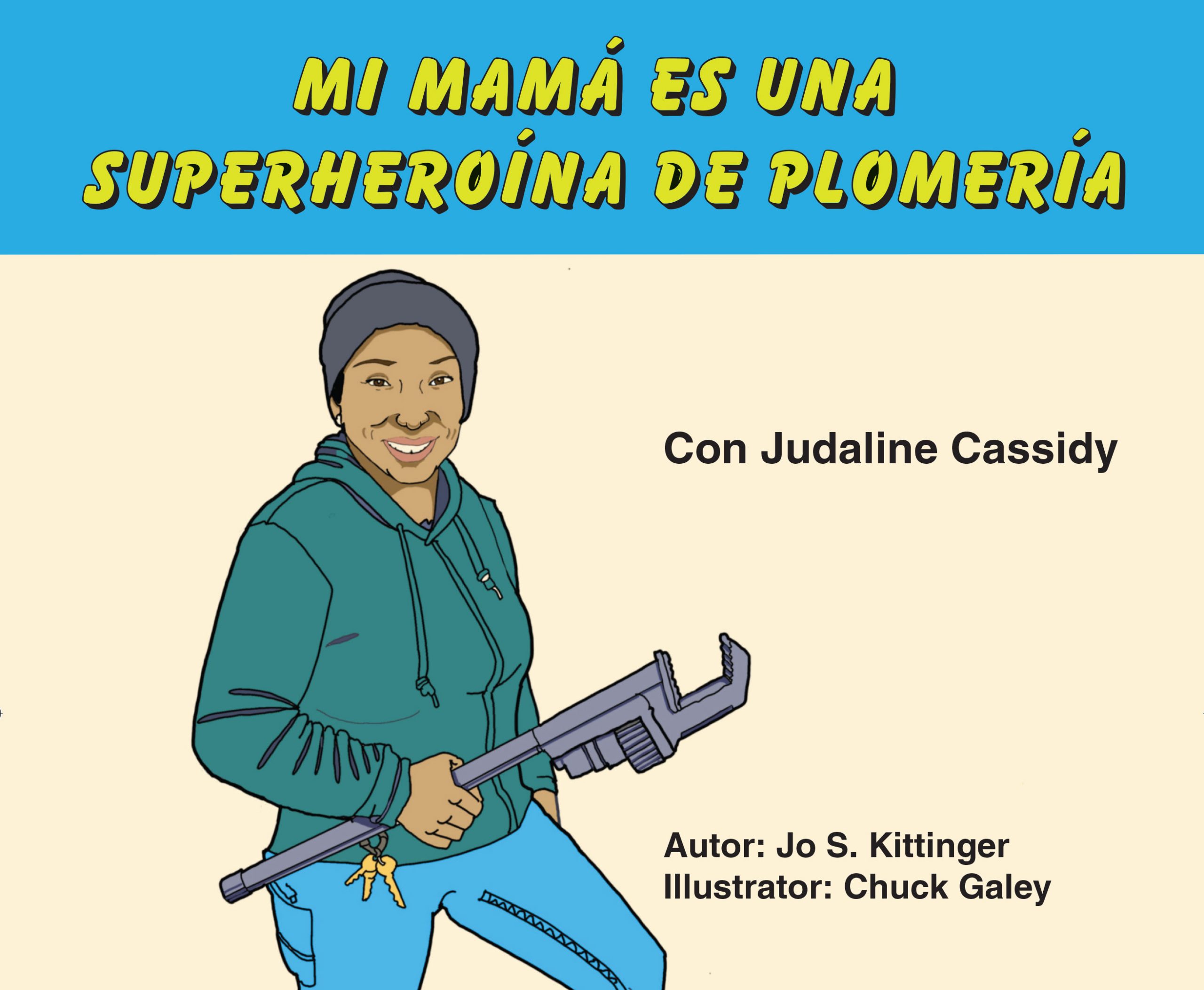
Submitted by the International Association of Plumbing and Mechanical Officials (IAPMO)
Thanks to an overwhelmingly positive response and the desire for it to be accessible to people around the globe, the International Association of Plumbing and Mechanical Officials (IAPMO) is pleased to announce that “My Mom Is a Plumbing Superhero,” the first children’s book focused exclusively on women plumbers, is now also available in both Spanish-language and international English versions.
The international English version includes such dialectal variations. It is also formatted to the international A4 paper size, while the Spanish-language version remains on U.S. letter. They may be downloaded for free HERE.
“As plumbing and its benefits are universal the world over, it is important that the messages this coloring book sends — among them, that plumbing careers are not gendered and plumbing is not just clogged toilets — reach people of all ethnicities, ages and genders across the globe,” IAPMO CEO Dave Viola said.
IAPMO partnered with real-life superhero plumber Judaline Cassidy, a proud member of Plumbers Local Union No. 1 NYC, founder of Tools & Tiaras, and one of CNN’s “Champions for Change.” Inspired and guided by the Cassidy’s 25-year career, “My Mom Is a Plumbing Superhero” creatively brings to life what it’s really like to be a plumber building a modern hygiene infrastructure.
The book illustrates how plumbers work on advanced water technologies to mitigate the effects of drought and natural disasters. The helpful nature of plumbers comes to life with illustrations depicting the work of service plumbers. The book also portrays women installing and maintaining medical gas systems.
Cassidy, a native of Trinidad and Tobago, founded the nonprofit Tools & Tiaras as part of her mission to show girls and women that Jobs Don’t Have Genders™.
IAPMO tapped noted children’s author Jo S. Kittinger and accomplished illustrator Chuck Galey to create “My Mom Is a Plumbing Superhero.” Kittinger has penned more than 35 books for children. Her book, “The House on Dirty-Third Street,” won several social justice awards, including a Christopher Award, a Social Justice Literature Award, and the Carol D. Reiser Children’s Book Award. Galey has illustrated more than 50 books for educational publishers and created covers for Beverly Cleary’s “Ribsy” and “Henry Huggins,” as well as R.L. Stine’s “Fear Street” series for Recorded Books, Inc.
IWSH WORKS WITH LOCAL HIGH SCHOOL STUDENTS IN EFFORT TO IMPROVE PLUMBING SYSTEMS IN LOWNDES COUNTY, ALABAMA, USA
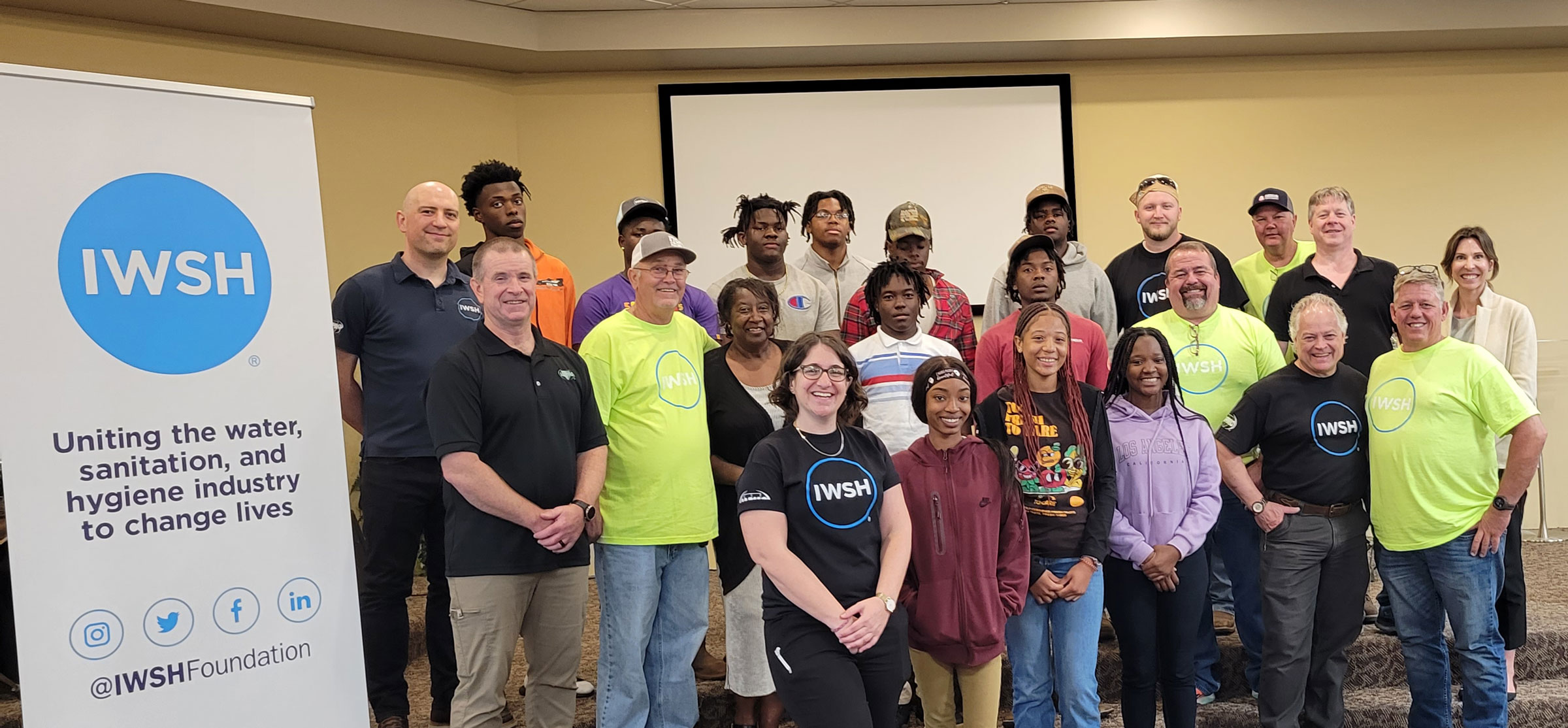
Submitted by the International Water, Sanitation, and Hygiene Foundation (IWSH)
The International Water, Sanitation, and Hygiene Foundation (IWSH) returned to Lowndes County, Alabama, USA recently to teach local high school students how to conduct household plumbing surveys that assess the quality and function of homes’ plumbing systems.
IWSH has been working in Lowndes County for the past few years with LIXIL Americas, FujiClean USA, and the Black Belt Unincorporated Wastewater Program (BBUWP) as part of a larger initiative to improve homes’ water efficiency and sanitation system functions. IWSH led a training with 12 high school students from Central High School and Calhoun High School in Lowndes County. Apprentices from Plumbers & Steamfitters Local Union 91 constructed product demonstration boards that included faucets, pipes and other fixtures so the students could get hands-on experience and learn about home plumbing systems. The high schoolers were also taught how to use the IWSH Household Plumbing Survey, a tool that assesses the efficacy of indoor plumbing systems.
“IWSH’s survey provides the necessary information to guide home plumbing repairs, helping us to create a more sustainable wastewater program,” BBUWP Executive Director Sherry Bradley said. “The training IWSH led for the local high school students will equip teenagers with the education and tools to conduct these surveys and perform a much-needed service in their own community. We see these kids learning the correct words about plumbing systems and understanding what’s not working within homes, and why. The students are now an integral part of improving people’s quality of life in Lowndes County.”
Based on the IWSH Household Plumbing Surveys, IWSH and LIXIL Americas staff were able to analyze the repairs needed in each home surveyed. IWSH then created job sheets that provided guidance for volunteer plumbers from the United Association of Journeymen and Apprentices of the Plumbing and Pipefitting Industry of the United States and Canada Locals 52, 91, 760, and South Central Pipe Trades — who are licensed in Alabama — to upgrade fittings, fixtures and appliances in selected homes using water-efficient products donated by LIXIL Americas.
“We know there are a lot of homes that need support; people deserve access to adequate sanitation and functioning plumbing systems with water-efficient technologies,” said Mike Webster, leader, project management for LIXIL Americas. “In October 2022, IWSH came to Lowndes County to pilot their Household Plumbing Survey with four high school students. The information they gathered allowed BBUWP, IWSH and LIXIL to better understand which repairs were needed and which materials LIXIL needed to provide. This visit, IWSH trained more students and surveyed more homes, which will eventually help LIXIL achieve our goal of upgrading indoor plumbing systems of 100 homes throughout Lowndes County.”
The U.S. Environmental Protection Agency (EPA) and the Department of Agriculture Rural Development (USDA-RD) have prioritized this type of work in their Closing America’s Wastewater Access Gap Community Initiative. More recently the Department of Justice has directed the Alabama Department of Public Health to conduct a variety of actions to address public health in Lowndes County.
“IWSH will continue to work in this area to help improve household plumbing systems and advance septic needs,” said Robyn Fischer, senior director of IWSH North America. “As part of this program, IWSH is training young people to use the Household Plumbing Survey, which will inform job sheets for licensed plumbers so they can perform the necessary repairs in homes throughout the county. It’s incredible to watch the students learn about the importance of water efficiency, understand how inadequate septic systems pose threats to people’s health, and see them develop an interest in plumbing. By supporting community involvement and local leadership, along with the vital work spearheaded by BBUWP and other partners, we can help improve access to more sustainable sanitation solutions and address public health issues.”
HELP THE WORLD PLUMBING COUNCIL GROW
Do you know of an organization or individual interested in joining the WPC? Share this link (https://www.worldplumbing.org/shop/) so they can join and become part of our global plumbing community!
DATES FOR DIARY
IAPMO/ASSE Co-Located 94th Annual Education and Business Conference
24 – 28 September 2023
San Antonio, TX, USA
www.iapmo.org/ibu/events
Service World Expo
3 – 6 October 2023
Phoenix, AZ, USA
www.serviceworldexpo.com
WaterSmart Innovations 2023
3 – 10 October 2023
Las Vegas NV, United States
www.watersmartinnovations.com/
WPC’s Conference 2023
17 – 20 October 2023
Shanghai, China
www.wpc-sh.com/
CIPHEX West
18 – 19 October 2023
Calgary, Alberta, Canada
www.ciphexwest.ca
Installer Show 2023
27 – 29 June 2023
NEC, Birmingham
www.installershow.com
Contact secretariat@worldplumbing.org to provide an event report or request listing of an upcoming event.
